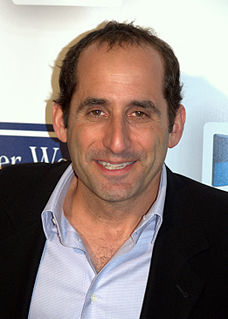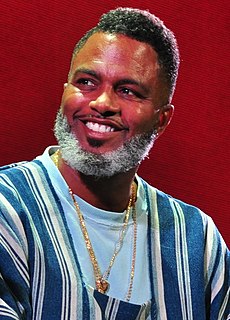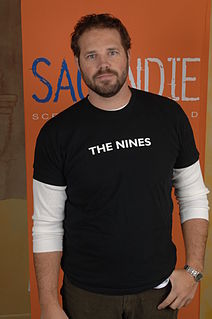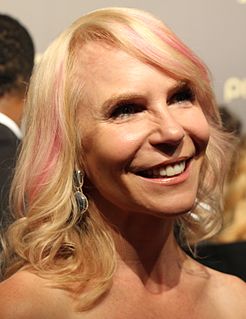A Quote by Peter Jacobson
If you do an episode about something like transverse myelitis, it's a real disease that's out there, there are a lot of people that have it, and it's hard to get funding for them because people don't know about it. There are actually a lot of doctors that don't know about it. But if you do an episode of House, all of a sudden 15 million people are hearing the words, and it's an opportunity.
Related Quotes
I'm not really sure why so much people still listen us. I think we live in an era when people get attached to stuff, and it means something. Then I think a lot of people heard about it over the years - like somebody's older brother might tell them, you know, because we're from his era, and he might be like, "You need to listen to this; this is what it's all about," you know what I mean? I don't know, man, it's hard to say. But it makes us feel special.
It's sad. There's a lot about this industry that a lot of people don't know about and don't find out about. There are a lot of tough things and trials and stuff that you're faced with. Sometimes, God has other plans for people. Sometimes bands can't stick through it. It depends on the situation. Keep praying for the bands that you like, seriously, because a lot of things will try to get in the way of being together. We've been blessed with not deal with those yet, but if we ever did...?
I think it's really easy for people to point out hypocrisy in people's lives. It's like yeah, I get on planes a lot, and I drank from a plastic water bottle today - you know what I'm saying? A lot of people would just be like, "Oh, you're a hypocrite. You live in an ecovillage for a month, and then you fly around the world to talk about a movie." Don't think that I don't think about those things! Don't think that that's not, like, a quandary in my life. It can be a pretty intense ethical dilemma. I think it's about figuring out, you know, navigating life.
I've read something that Bill Gates said about six months ago. He said, ‘I worked really, really hard in my 20s.’ And I know what he means, because I worked really, really hard in my 20s too. Literally, you know, 7 days a week, a lot of hours every day. And it actually is a wonderful thing to do, because you can get a lot done. But you can't do it forever, and you don't want to do it forever, and you have to come up with ways of figuring out what the most important things are and working with other people even more.
When we came to the network, it was a very interesting time where Portlandia had just come on the air and had been very, very successful. I think people had Portlandia-sized expectations for Comedy Bang! Bang!, especially after the first episode was sampled by quite a large number of people. I remember getting the ratings after the first episode, and the network was over the moon about it. And then the second episode tanked so hard. Like, no one watched it. It was a resounding, "Hey, a bunch of people tried your show, and they all hate it!"
The so-called resistance is very broad and we don't agree on everything, but there's a moment of opportunity when people are paying attention. It's time for us to really get serious about political education and about our own moral education in this moment, and to seize this opportunity to organize and be in deep dialogue with a whole lot of people who never even thought about being politically engaged or active before. There's real hope there and real opportunity.
I have a big, long episode [in Full Circle] with Calista [Flockhart], and then my character actually carries out through a lot of it because he was a cop investigating this crime. But it is almost hard to remember, even though it wasn't that long ago. We shot it so fast. We literally shot that whole episode in one day.




































